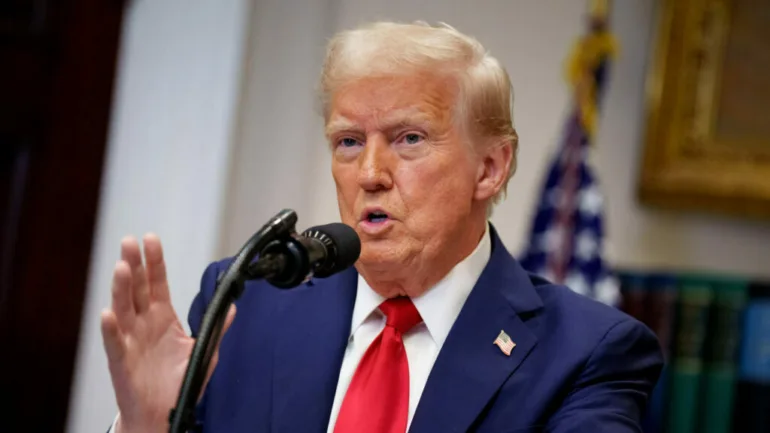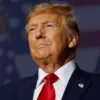US President Donald Trump has announced steep tariffs on auto imports and parts, sparking threats of retaliation from key trading partners ahead of additional trade levies promised for next week.
Trump signed the order in the Oval Office, declaring a 25% tariff on all cars not made in the United States. The new duties, which will affect foreign-made cars and light trucks, take effect at 12:01 am (0401 GMT) on April 3. Key auto parts will also be hit within the month.
In response, Canada’s Prime Minister Mark Carney called the tariffs a “direct attack” on Canadian workers, with his cabinet set to discuss retaliatory measures. Meanwhile, Japan’s government expressed regret, and Prime Minister Shigeru Ishiba announced that Tokyo was considering countermeasures.
Peter Navarro, Trump’s senior trade advisor, criticized “foreign trade cheaters” who, he claimed, turned the US manufacturing sector into a “lower-wage assembly operation for foreign parts.” He specifically targeted Germany and Japan for restricting the construction of higher-value parts to their own countries.
The tariffs add to the duties Trump has already imposed on imports from key trading partners, including Canada, Mexico, and China, as well as a 25% duty on steel and aluminum. However, vehicles entering under the US-Mexico-Canada Agreement (USMCA) may qualify for a lower tariff based on their American content, and USMCA-compliant auto parts will remain tariff-free.
The move has caused uncertainty in financial markets, with fears that the tariffs could trigger an economic downturn. US automakers, including General Motors and Ford, saw their stock prices fluctuate ahead of the announcement, while Asian carmakers like Toyota, Nissan, and Honda experienced sharp declines.
Trump has defended the tariffs as a means to generate government revenue and revive American industry. However, critics warn that the levies could harm close US allies and lead to higher prices for consumers. Wendy Cutler, a former US trade negotiator, warned that the 25% tariffs would have a “devastating impact” on US partners and could undermine US commitments under free trade agreements.
The American Automotive Policy Council, representing major US automakers, expressed cautious support, hoping the tariffs would boost US production but emphasizing the need to avoid higher consumer prices.
Trump’s tariff plans extend beyond automobiles, with the president targeting sectors such as pharmaceuticals, semiconductors, and lumber. His latest announcement comes ahead of “Liberation Day” on April 2, when he is expected to impose reciprocal levies on countries he believes engage in unfair trade practices.
The auto tariffs are based on a 2019 government investigation that found excessive imports could weaken the US economy and jeopardize national security.
AFP


